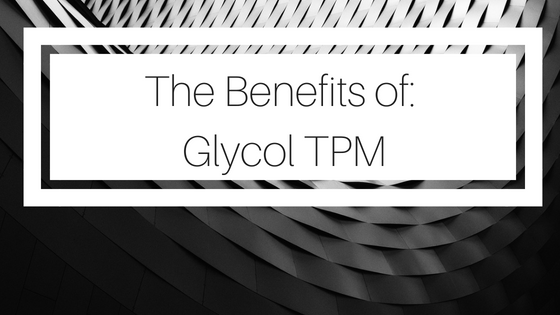What is Tripropylene Glycol Methyl Ether?
More commonly known as Glycol TPM, Tripropylene Glycol is a mixture of organic compounds that is typically utilized as a solvent industrially and in laboratories.
Benefits of Glycol TPM
- Powerful solvency.
- Low evaporation rate.
- Low viscosity.
- High dilution rate.
- Coupling ability.
Common Applications
Glycol TPM is commonly used as a solvent and a coupling agent in products like rust, varnish, and paint removers.
Industrial Applications
Tripropylene Glycol is utilized to manufacture many industrial products.
Glycol TPM is used as a solvent in the creation of ink for ballpoint pens, felt-tip pens, stamp-pads and printer ink-both digital and conventional.
Glycol TPM is also used to manufacture the ink in livestock markers.
Consumer Applications
Tripropylene Glycol Methyl Ether is an ingredient in many consumer products.
Glycol TPM aids in creating varnish remover, paint remover, and rust remover as a coupling agent and a solvent.
Glycol TPM and Penetrating Oils
Glycol TPM is used in the manufacturing of penetrating oils that are used to separate mechanical parts that have rusted together.
Glycol TPM is ideal for this application due to its low viscosity which enables it to coat the mechanical parts and remove the problematic rust.
Products like Glycol TPM that are utilized in penetrating oils are most often volatile.
This risk mixed with Tripropylene Glycol Methyl Ether’s slow evaporation rate means that penetrating oils with Glycol TPM should not be applied as a general lubricant.
Penetrating oils can also be used to remove adhesive stickers, lessen the friction on musical instruments with strings, household repair applications, and gardening applications.
Tripropylene Glycol is also applied to create hard surface cleaners used in everyday applications.
Safety and Handling
Glycol TPM is a volatile compound. Proper safety measures should be taken whenever utilizing the product:
- Glycol TPM causes mild eye irritation and injury upon ingestion. It can potentially cause drowsiness or dizziness.
- Skin exposure is unlikely to be harmful unless prolonged.
- Glycol TPM can potentially oxidize in air and form explosive peroxides.
- It reacts strongly with some bases, acids, and oxidants. Therefore, Glycol TPM should be stored separately from strong bases, acids, and oxidants.
- Glycol TPM may create flammable or toxic gasses upon contact with alkali metals or nitrides.
- For optimal safety handle Glycol TPM with protective gloves and safety goggles in a well ventilated area with a self-contained breathing apparatus.
- Carefully read the SDS provided with your shipment of Glycol TPM.
If you would like to purchase Glycol TPM, please call (800)-563-1305 or shop online here.















